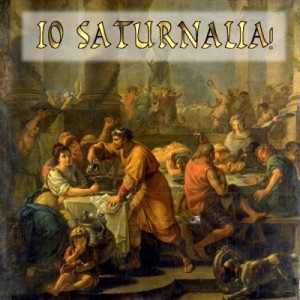
Sex was always part of the normal life in the Classical era and in most ancient cultures. Since Christianity took over the Mediterranean world as a major religion, sex descended to the lowest level. References to the sexual act became taboo and the impureness of everything related to sex was enhanced. The reasons for that phenomenon are unclear for me and, I am sure, for many people. In the following paragraphs I am going to try to find answers that make philosophical sense, not necessarily logical sense.
Were the first centuries of the Common Era a time in history characterized by epidemics of venereal diseases? If the answer were yes, it would have made sense for the primitive clergy to try to stop people from practicing excessive sex. A way of trying to achieve that would have been to demonize sex in order for the common human beings to abstain from practicing it outside marriage. As a result of the use of the sacred influence of the priests, the epidemics would have been controlled. However, there are problems with this theory. History does not recall an epidemic of venereal diseases. In addition, human beings have probably had the same amount of sex then than the amount we have today or the amount we had in the Stone Age. Therefore, the explanation of the venereal diseases does not seem to be a plausible one.
Was the intention to suppress the feminine side of sex in order to better fight the Pagan beliefs that rely of the cult of fertility and mother Earth? A common aspect of the mysticism of the ancient cultures is the profound respect for the soil that give us food, for the fertility in general and for mother nature. All three are identified with our feminine side. In addition, sex was regarded as a way of communication with their gods. Thus, if the new religion had to show predominantly masculine elements, like the obviously masculine deity described in the Bible together with the masculine Christ, the logical course of action was to achieve minimization of the importance of females and sex in society. As a consequence of all this the female sex had to be, if not banned, devoid of all pleasurable experience in order for it to serve only for reproductive purposes. If it not were for reproduction, female sex would have been totally banned. There is one problem with this appealing theory. Masculine homosexuality should have been allowed and promoted, however, that never happened.
Where the early Christians morally concerned about the irresponsible generation of new life through sex? This seems to be a valid thought. By limiting sex, the family would have emerged stronger as the basis of a healthy society. There would be no unwanted children or children with no family as a consequence of the lascivious behavior of human beings. Moreover, the prohibition of sex would lead to a decreased rate of abortions. However, the record of Christians with respect to the respect of the most important of the human rights, life, is not the greatest. Prosecution of Pagans, Crusades, the Inquisition, are examples of the low regard for life of the Christians of those times. Furthermore, the characterization of sex as impure did not stop it nor decreased the number of unwanted children or abortions.
Was sex so powerful that would distract human beings from the divinity? Once religion becomes institutionalized, it becomes a political structure. It needs devoted people to secure and to increase the base of power. The early Christian philosophers probably realized this and decided that, by demonizing sex, they would make people turn their attention to godly things. By doing that through the new institution, it would assure the early Church with the number of people and money needed to show as powerful. The answer seems logical, nevertheless, incomplete. There are other aspects of the religion that had enormous appeal for the common people, like the afterlife and the promise of heaven
As it can be seen, there can be many ways of explaining a mysterious phenomenon. I would be interested if Christians with solid philosophical foundations help me in finding an answer.

















